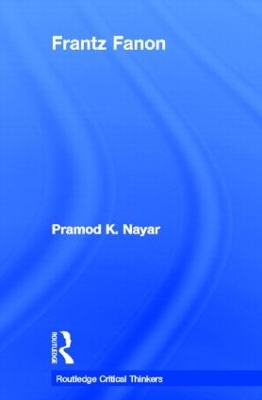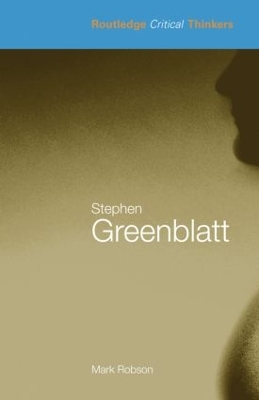Routledge Critical Thinkers
3 total works
Frantz Fanon has established a position as a leading anticolonial thinker, through key texts such as Black Skin, White Masks and The Wretched of the Earth. He has influenced the work of thinkers from Edward Said and Homi Bhabha to Paul Gilroy, but his complex work is often misinterpreted as an apology for violence.
This clear, student-friendly guidebook considers Fanon's key texts and theories, looking at:
- Postcolonial theory's appropriation of psychoanalysis
- Anxieties around cultural nationalisms and the rise of native consciousness
- Postcoloniality's relationship with violence and separatism
- New humanism and ideas of community.
Introducing the work of this controversial theorist, Pramod K. Nayar also offers alternative readings, charting Fanon's influence on postcolonial studies, literary criticism and cultural studies.
Stephen Greenblatt is the most important exponent of 'new historicism', a dynamic critical movement which rejects the traditional reliance on individual canonical texts, exploring a multitude of other, more marginal works and voices. Questioning not just literary but social, political and cultural assumptions about knowledge and power, Greenblatt's work has had a huge impact on contemporary theory.
Mark Robson discusses ideas specific to particular works and explores the relation of Greenblatt's thought to new historicism as well as other modes of criticism including the key topics of:
- context
- cultural poetics
- power, subversion and containment
- thick description
- anecdotes.
Providing a starting point for readers new to this crucial theorist's sometimes complex texts, or support for those deepening their understanding of his work, this guidebook is ideal for students in the fields of literary, history, social and cultural studies.
Students in literary studies frequently come across Plato, Aristotle and Longinus, either directly through their names and concepts or indirectly, in the work of writers and theorists responding to them. Eaglestone argues that while great thinkers of antiquity may seem far away, their ideas still shape how we think about literature and culture even today. Contemporary examples illustrate the meaning of the original texts and highlight their continuous relevance.
Including an annotated bibliography this guide offers a literary introduction to these classical thinkers and is ideal for Literature students studying theory and criticism.


